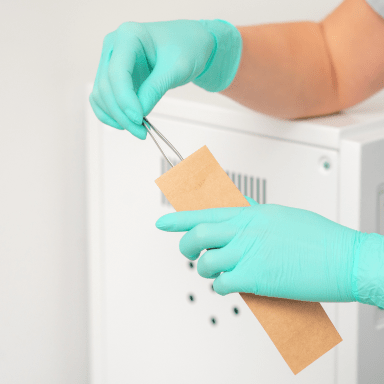Chickenpox Vaccines: Who Needs It & Why
Chickenpox remains a common and contagious viral infection, historically considered a rite of passage in childhood. However, with increased global travel and growing awareness of the potential complications, the chickenpox vaccine has become a vital tool in both personal and public health. In this article, we explore what the chickenpox vaccine is, who should consider receiving it, and why it is essential for travellers and healthcare professionals alike.
What Is Chickenpox?
Chickenpox, caused by the varicella-zoster virus, typically presents as an itchy, blister-like rash accompanied by mild fever and fatigue. Although many people experience a mild form during childhood, the infection can lead to severe complications in some individuals. These complications may include bacterial infections of the skin, pneumonia, and, in rare cases, encephalitis. The introduction of vaccines has drastically reduced the incidence of chickenpox in countries where immunisation programmes are in place, but it remains a considerable concern globally.
Understanding Chickenpox Vaccines
The chickenpox vaccine has proven to be a safe and effective method of preventing the infection. It works by introducing the immune system to a weakened form of the virus, thereby prompting the body to develop immunity without causing the full-blown disease. Typically administered in two doses, the vaccine not only reduces the severity of the illness if contracted but also helps prevent outbreaks in community settings, healthcare facilities, and international travel hubs.
For those with a history of chickenpox infection or prior vaccination, antibody levels may provide sufficient protection. However, antibody titres can wane over time, which is why booster doses are recommended in certain scenarios, particularly in adults at higher risk or those who play a critical role in healthcare delivery.
Who Should Consider Getting Vaccinated?
The decision to receive the chickenpox vaccine should be based on individual risk factors and exposure potential. The vaccine is primarily recommended for:
- Children who have not yet had chickenpox or been vaccinated, ensuring long-term immunity and fewer complications.
- Adults who have never been infected or vaccinated, especially if they work in high-risk environments like hospitals, schools, or care homes.
- Travellers heading to regions where chickenpox is more common or where outbreaks have been reported.
- Healthcare professionals, who are regularly exposed to infectious diseases and need to maintain a robust immunity to protect themselves and vulnerable patients.
While many adults may carry antibodies from childhood infections, it is wise to consult with a healthcare provider to verify immunity levels. This is particularly important for pregnant women or those planning to conceive since contracting chickenpox during pregnancy can have significant repercussions for both mother and baby.
Why Is the Chickenpox Vaccine Important?
The importance of the chickenpox vaccine extends beyond simply preventing a childhood rash; it plays a critical role in maintaining overall community health. Vaccinations help reduce the virus’s spread, protecting individuals who are more vulnerable to severe complications. For immunocompromised persons, the elderly, and pregnant women, exposure to chickenpox can be especially dangerous, leading to complications that require hospitalisation and intensive care treatment.
From a public health perspective, high vaccination rates contribute to herd immunity, reducing the risk of outbreaks and protecting those who are unable to receive the vaccine due to medical contraindications. Additionally, vaccinating travellers minimises the risk of cross-border spread and helps contain possible epidemics, benefiting global health security.
Special Considerations for Travellers and Healthcare Professionals
Travellers often encounter different strains of the varicella-zoster virus, and visiting regions with lower vaccination coverage increases the likelihood of exposure. For individuals planning international travel, particularly to countries where chickenpox is endemic, vaccination is a proactive step to ensure personal safety and public health. Moreover, being vaccinated may also be a requirement for certain travel visas or health advisories issued by governments.
Healthcare professionals, who are on the frontline of patient care, must consider the chickenpox vaccine as part of a broader occupational health strategy. Given their regular contact with communal patient areas and the critical nature of their roles, maintaining immunity safeguards both their health and the wellbeing of the populations they serve. Regular review of immunisation status and timely booster shots are essential practices in professional healthcare settings.
Vaccine Safety and Effectiveness
The chickenpox vaccine is supported by extensive research and long-term studies that confirm its safety and efficacy. Like any vaccine, minor side effects such as redness or soreness at the injection site, low-grade fever, or mild rash might occur. These side effects are generally short-lived and considerably less severe than the complications associated with the actual infection. Serious adverse effects are rare, making the vaccine a highly recommended preventive measure for at-risk populations.
For those with allergies to vaccine components or with compromised immune systems, it is important to have an in-depth discussion with a healthcare provider. Individual medical history plays a crucial role in vaccination decisions, and professional advice is valuable to ensure the chosen prevention strategy aligns with personal health needs.
Integrating Vaccination Into Your Health Plan
Whether you are a frequent traveller or a healthcare professional, incorporating the chickenpox vaccine into your routine health care is a strategic step towards long-term well-being. Assessing your vaccination history and current risk status should be an integral part of your health plan. The chickenpox vaccine not only offers personal protection but also contributes to building a safer community by reducing the overall prevalence of the virus.
If you are unsure about your current immunisation status or wish to learn more about how the vaccine can benefit you, consider consulting with a healthcare professional who specialises in travel medicine. Our expert team at Mona Pharmacy is dedicated to providing precise, personalised advice to ensure you receive the vaccination that suits your health needs. To take this important step, visit our appointment booking page here and secure your consultation today.
Conclusion
Understanding the significance of the chickenpox vaccine is vital, especially as the world becomes more interconnected and the demand for travel rises. The vaccine not only prevents an uncomfortable and potentially dangerous disease but also plays a crucial role in protecting public health. By choosing to vaccinate, travellers and healthcare professionals help reduce the spread of chickenpox and contribute to a safer, healthier environment for all.
Maintaining up-to-date immunisations is a small yet powerful decision that has long-lasting benefits. If you believe you or someone you care about might be at risk, or if you are planning international travel, now is the perfect time to discuss your vaccination options with a trusted healthcare provider. Your proactive approach to health is an investment in a safer future. Remember, for tailored advice and to schedule your vaccination, you can easily book an appointment at Mona Pharmacy.






